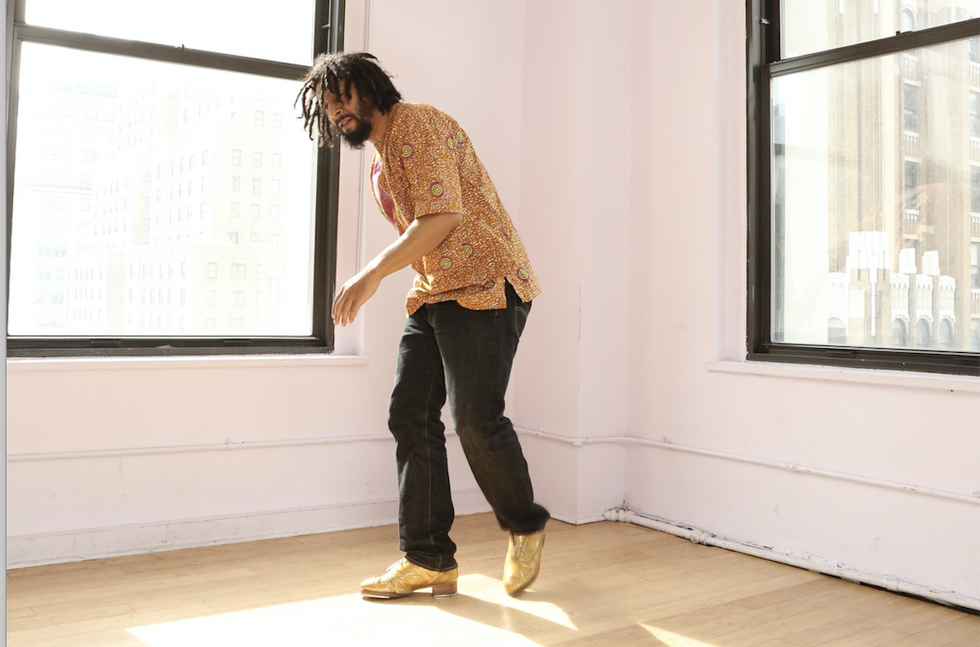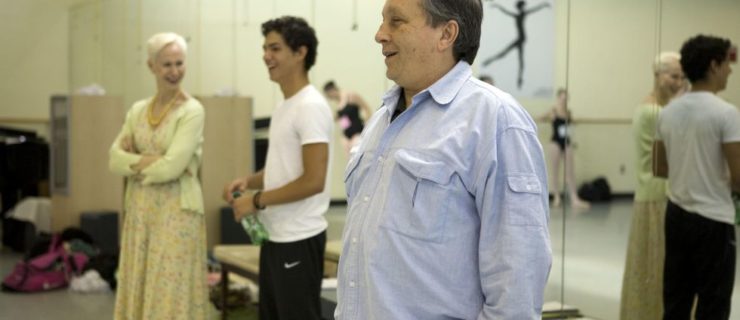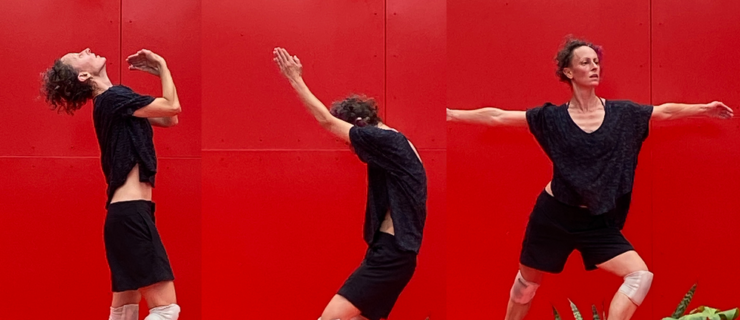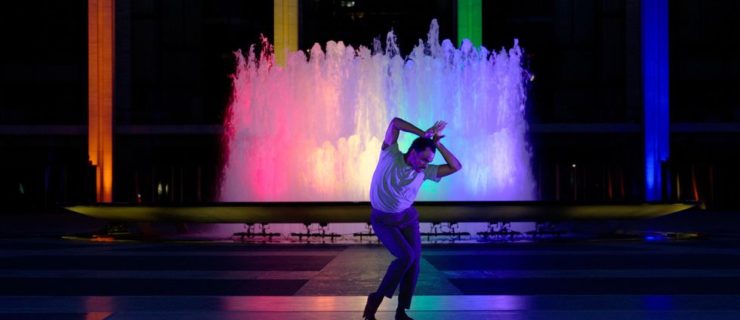Moving Forward by Looking Back: A Week at the L.A. Tap Festival Online
I turned to tap at the outset of the European lockdown as a meaningful escape from the anxiety of the pandemic. As a dance historian specialized in dance film, I’ve seen my fair share of tap on screen, but my own training remains elementary. While sheltering in place, my old hardwood floors beckoned. I wanted to dig deeper in order to better understand tap’s origins and how the art form has evolved today. Not so easy to accomplish in France, especially from home.
Enter the L.A. Tap Fest’s first online edition.
Alongside 100 other viewers peering out from our respective Zoom windows, I watch a performer tap out rhythms on a board in their living room. Advanced audio settings allow us to hear their feet. In the chat box, valuable resources are being shared and it’s common to see questions like, “Can you post the link to that vaudeville book you mentioned?” Greetings and words of gratitude are also exchanged as participants trickle in and out from various times zones across the US and around the world.
The annual L.A. Tap Fest is led by award-winning artist Jason Samuels Smith, co-directed by Emilie Koenig and produced by dance screen legend Debbie Allen through the Debbie Allen Dance Academy. Like so many dance festivals this summer, migrating master classes and events to an online format was no small undertaking. Yet, a strong sense of community emerged throughout the week, as well as important discussions on race, history and the future of tap.
You cannot respectfully undertake the study of tap without exploring how racism has impacted the art form and its dancers. Fred Astaire is a household name; his black tap coach John W. Bubbles is not. What does it mean to study tap today? And what responsibilities do dancers and tap educators have? How can we work together to recognize tap as a vibrant and beloved African American dance form?
Learning and Jamming Digitally
My all-access festival pass provided a link to masterclasses and choreography courses in tap at every level, as well as complementary electives like jazz, African and kathak. Alongside Smith, the faculty boasted tap luminaries Derick Grant, Star Dixon, Dormeshia, Tony Merriwether, Chris Scott and Ivery Wheeler, to name a few. Their pre-recorded classes were available at any time throughout the week.
In the evenings, I joined participants from across the United States and multiple continents for tap events that were adapted for Zoom. An all-ages jam kicked off the first evening, followed by a virtual cutting contest mid-week. Although Zoom didn’t allow for the dancers to share a physical space, they were able to emulate tap’s traditional face-off through alternating turns. Alicia Niwa won in the junior category, while Olivia Hussey finished first in the older division.
Preserving the Legacy
In an interview, Smith recalled how Gregory Hines’ enthusiasm about his idea for the first L.A. Tap Fest provided the encouragement Smith needed to make it happen. A cancer diagnosis didn’t stop Hines from offering to perform at the inaugural festival for a symbolic five dollars. When the dancer tragically passed away mere days before the festival opened, it fueled Smith’s commitment to honoring tap’s heritage. He notes that Black tap artists “went through so much. I don’t want their legacy and experiences to have been in vain.” The festival program reflects this mission through “footage night,” an archival screening and numerous invited speakers.
Aged 86, Dr. Arthur Duncan was one such guest, appearing first via a prerecorded conversation with Smith, followed by an interactive Q&A. Best known for his years dancing on “The Lawrence Welk Show” (1964–1982), Duncan regaled us with memories of his ongoing career. Persevering in the face of racism, he underscored the need to have a strong support network. He cited important allies like Betty White, who ignored complaints from racist television viewers and invited the dancer back to her 1954 talk show.
Smith is an inspiring ambassador and moderated discussions that sometimes lasted over three hours, including a well-attended exchange on race and tap. I repeatedly marveled at his skills of engaging with viewers of all ages, from children to senior professionals, while maintaining compelling and constructive dialogues.
Listening was my most treasured experience of the festival, being able to hear directly from the source how Black tap artists envision a fairer future. The need for more oral and visual histories of tap was raised repeatedly. Indeed, during the “elder’s forum,” Deborah Mitchell, founder of New Jersey Tap Dance Ensemble, noted that the “The pandemic has rekindled a fire in me, to look at what I’m passing on.”
Interconnected themes of racism, cultural appropriation, heritage preservation and the future of tap were discussed by additional pillars of the tap community, including Hank Smith, Dianne Walker, Essie Bradic and Ivery Wheeler.
Walker, artistic director of TapDancin, Inc. in Boston, affirmed that “now is the moment to create change” and noted that among other resources, she would like to see tap’s origins as an African American art form standardized and widely taught. Wheeler confirmed, “We as pioneers of this dance, can come together as one force and let people know where this comes from and what it means.”






